Our impact

Here at Blind Veterans UK, we’ve been rebuilding veterans’ lives after sight loss for over 100 years.
When veterans lose their sight, their world is turned upside-down. Passions and hobbies suddenly seem impossible and even simple day-to-day activities like making a cup of tea become a challenge.
On top of that, it can also be an isolating and lonely experience.
At Blind Veterans UK we provide the rehabilitation, training, and practical advice and emotional support to ensure veterans can learn the skills they need to regain their independence and live the life they choose.
Thanks to the incredible supporters who fund our work, we’re able to have such a life-changing, long-lasting, and meaningful impact on veterans’ lives.
This page is testament to what we can achieve together.
Blind veterans’ needs are at the heart of everything we do. So as we’ve transitioned out of the pandemic, we’ve adapted our services to ensure they continue to receive our support exactly where they need it. Whether in their community, at our wellbeing centres or virtually, we’re here to support them in the most effective way possible.
All statistics on this page relate to the financial year 2021/2022.
total income
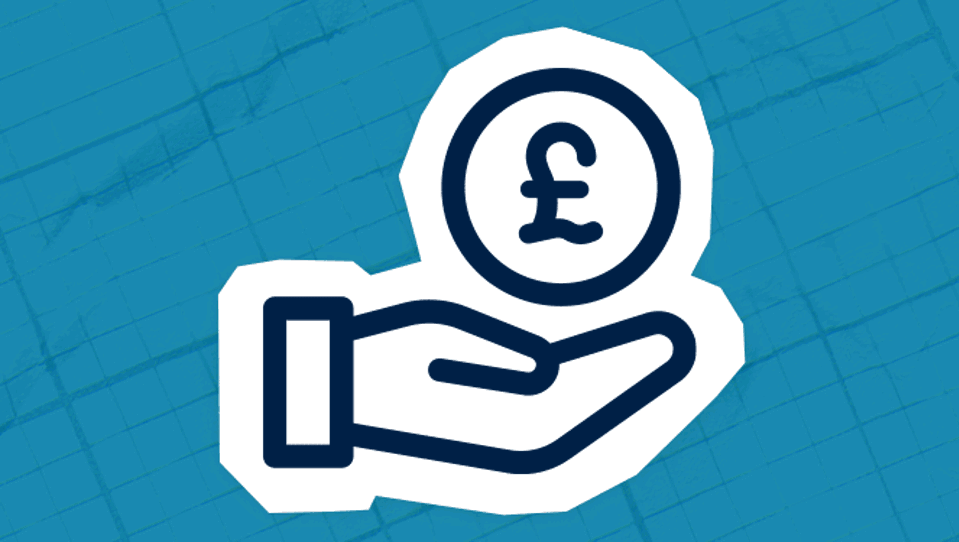
total expenditure
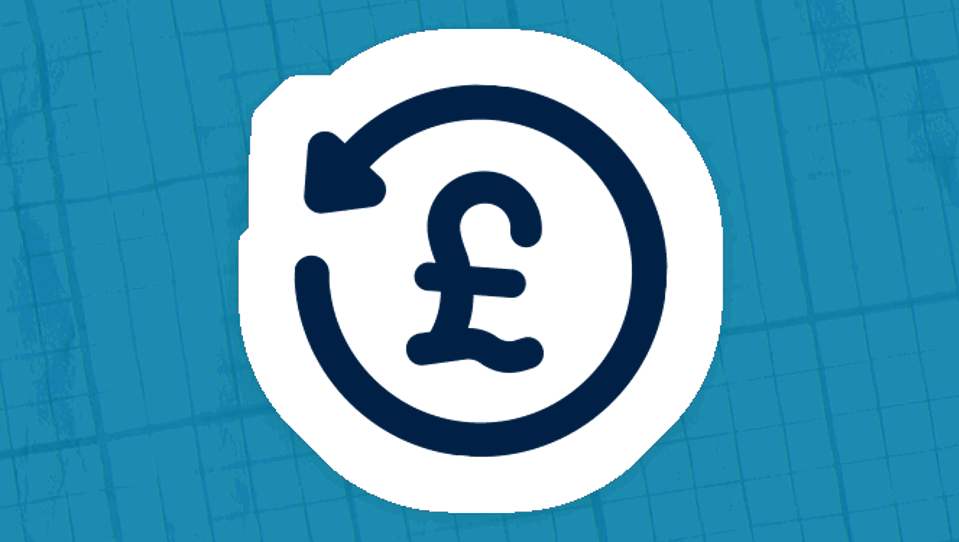
of every £1 donated is spent on charitable activities, with the remaining 14p going towards raising the next £1
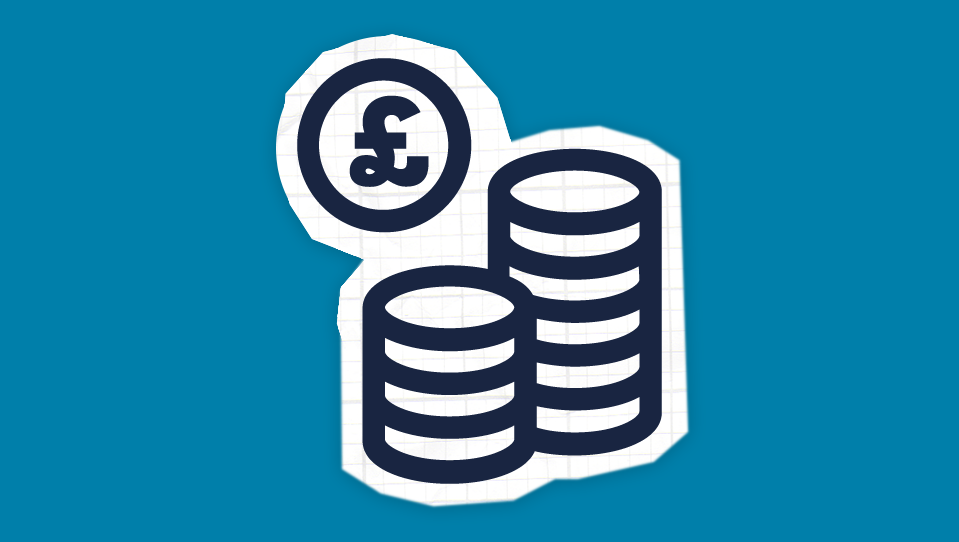
Rehabilitation & training
Rehabilitation is key in helping our veterans adjust to life with sight loss. We give them the training they need to live independently and navigate their environment with confidence, meaning they can stay safe at home and in their community, and in touch with loved ones.
Making the most of limited sight
Sight loss presents itself in many different ways and our blind veterans often have some limited sight available to them. As experts in sight loss rehabilitation, we show veterans how to make the most of the sight they have with simple skills and strategies, and training on specialist equipment.
online introductory weeks held for blind veterans, providing essential skills and peer support at the start of their sight loss journey

blind veterans were welcomed into our charity
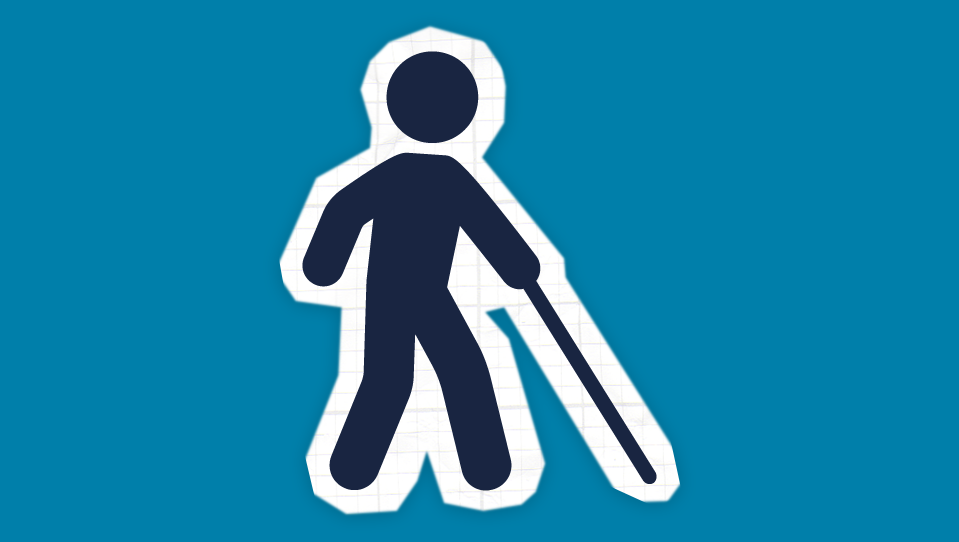
blind veterans received electronic magnifiers and readers, enabling them to read letters, documents, newspapers and more

Case study: independently using public transport
Blind veteran Carl approached one of our Rehabilitation Officers and shared that he wanted to independently travel to his local social club, with part of the journey involving getting on a bus.
Carl was apprehensive to trial the route for the first time with the pressures of bus timetables and other passengers. So our Rehabilitation Officer Karla arranged a trip to his local bus depot to teach Carl long cane techniques, practice the process of getting on and off the bus, and build up his confidence.
Following the session Carl said: “Karla was so patient and an amazing instructor. And the bus company were incredibly accommodating by letting me practice on both types of bus. Now I feel ready to take on the journey by myself. It’s just brilliant.”
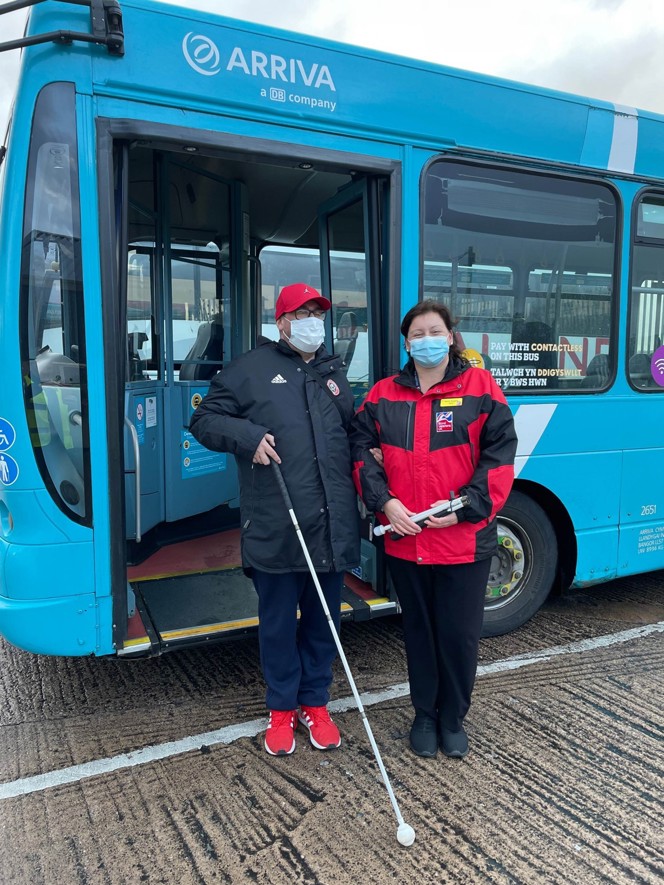
Using technology
We’ve embraced technology since our foundation, and it continues to have an increasingly positive and transformative impact on the lives of our blind veterans. From simple devices like a liquid level indicator which beeps when a mug of tea is full, to smart speakers which give blind veterans access to the internet with their voice, training veterans on technology is a key part of our rehabilitation service. Recently we teamed up with Microsoft to show how we've used Teams to support our veterans and keep them connected.
blind veterans were referred for training on assistive technology
blind veterans received assistive smart phones and tablets, enabling them to access information and stay in touch with loved ones
blind veterans received smart speakers, giving them access to the internet with their voice
Case study: reconnecting family with technology
After Eddie lost his sight, his world fell apart. Living over 100 miles from his son and grandchildren, they would keep in touch through a weekly video call on his tablet. But as Eddie lost his sight, he lost his confidence too, and decided to give the tablet away.
Luckily Eddie joined our charity, and as part of his introductory week, received an IT session on how to use the adaptive technology on his phone and tablet to make video calls to his son and grandchildren.
Tears streamed down Eddie’s face as he was able to video call for the first time since he lost his sight and at the end of his introductory week, he said: “This week has been amazing. I feel that I’m slowly gaining confidence and can see a way forward. Life is getting better now!”
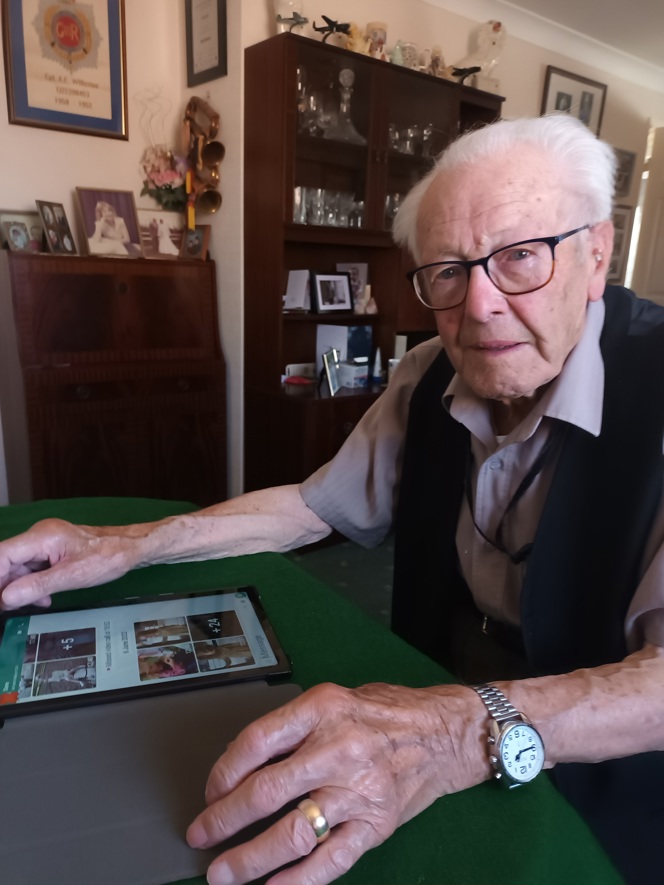
Health & wellbeing
When veterans lose their sight, they often describe their world as ‘coming to a halt’. On top of this, the isolation that comes with age, is only exacerbated by sight loss, and can make things hard to bear.
So as well as supporting blind veterans to overcome physical challenges, we also help them improve their general health and mental wellbeing.
By finding ways for them to rediscover their passions, connect with others, and consider their general health, we can have a hugely positive impact on their lives.
Rediscovering passions
After losing their sight, blind veterans will sometimes give up on their hobbies and interests because they feel like they can’t do them anymore. We’re here to show them, that with just a few adaptations, they can be back and enjoying their passions just like they were before they lost their sight.
of our beneficiaries have taken part in our National Creative Project since its inception, giving them a creative outlet and way to rediscover their passions
blind veterans took park in our regular hobby groups, covering 14 different interests
regular online social groups were run for blind veterans, offering them peer support and alleviating the isolation that is often experienced with sight loss
Case study: new ways to woodturn
Royal Artillery veteran Bill has a passion for woodturning and had been pursuing his hobby for over 40 years. But after losing his sight, he felt unable to woodturn anymore and gave up on his craft.
However, after joining our charity, he attended a woodturning week at our Centre of Wellbeing in Llandudno where he learnt new techniques to make the most of his limited vision and learn to woodturn again.
Since then Bill’s woodturning has come on leaps and bounds and he even hosts online sessions to teach other blind veterans the skills he’s picked up along the way. He says: “I am where I am because of the staff, veterans and volunteers at the charity. I remember being told during my introductory week that there’s no such thing as can’t and that it’s important to focus on what you can do. I get a lot of satisfaction from seeing the veterans smile when they’ve made something new.”
Overcoming isolation
It’s a sad fact that many of the blind veterans we support suffer from social isolation. It happens as we get older and our families leave us, and partners pass away. For people with sight loss, that isolation is all the more painful to bear.
That’s why we run social groups up and down the country for blind veterans to get together with others in the same position as themselves. And our volunteers provide a crucial lifeline through befriending support and helping blind veterans in their local community.
befriending calls were made by our volunteers to isolated and lonely blind veterans
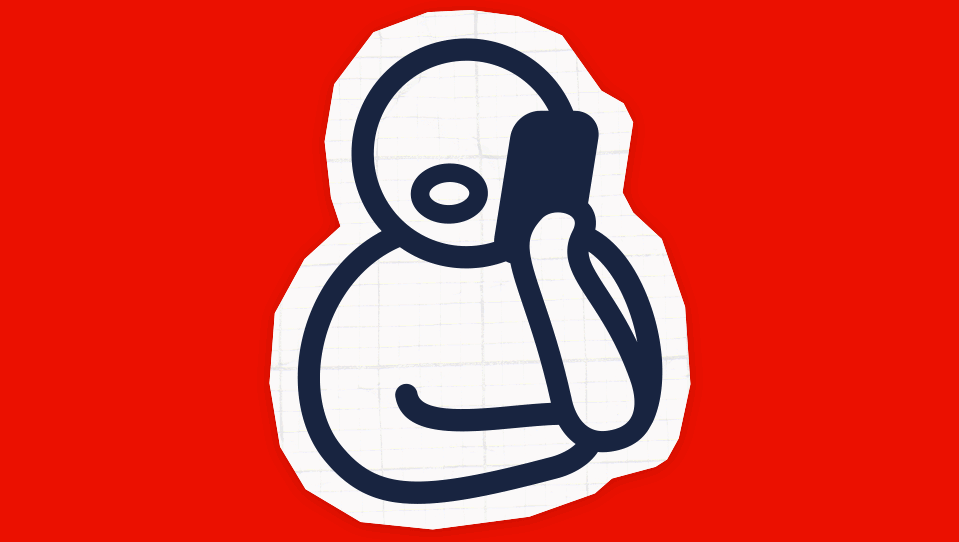
blind veterans attended social groups, offering them peer support and alleviating the isolation that is often experienced with sight loss
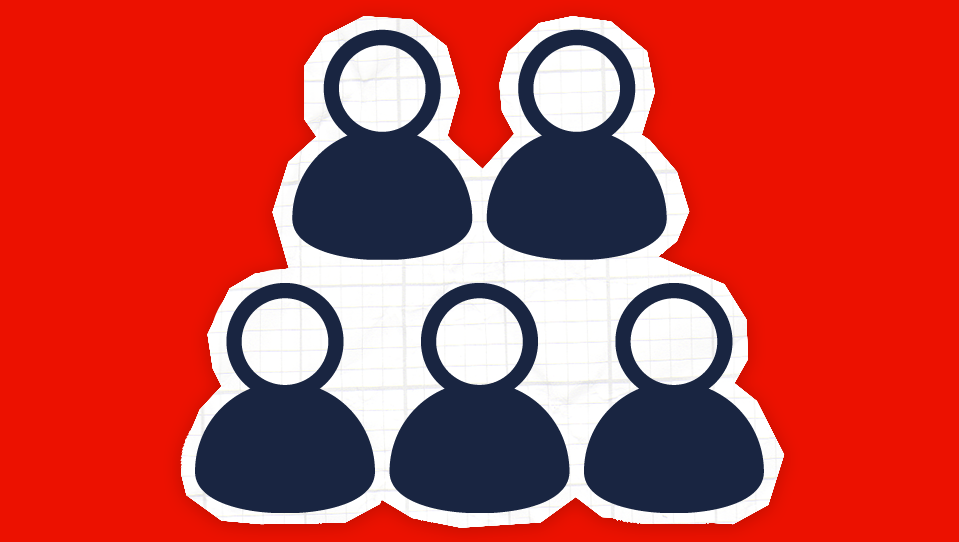
local social groups were run for blind veterans, giving them support and friendship in their local area

Case study: befriending in the community
Mia is one of our Home Visitor volunteers, matched up with blind veteran Maurice. Her weekly visits provide the crucial companionship that Maurice needs. Shortly after being matched together, the pair discovered a shared interest in model making, which forms the basis of many of their get togethers.
And when they’re not doing crafts together, Mia will read a book to Maurice, they’ll have a coffee at the garden centre, or they’ll take a stroll down to the seafront for a fish and chip lunch. In just one year, Mia and Maurice have developed an unbreakable bond.
Maurice says: “I love spending time together with Mia, it’s my favourite time of the week. It’s like watching an angel come down from heaven when she comes to see me. It makes my day. I know she’d do anything for me, I really appreciate her."

Living well
We offer blind veterans' advice on how to improve their general health and emotional wellbeing, with tips and programmes on areas including: general physical and mental health, mindfulness, sleep hygiene and healthy eating.
blind veterans were referred for health and wellbeing support
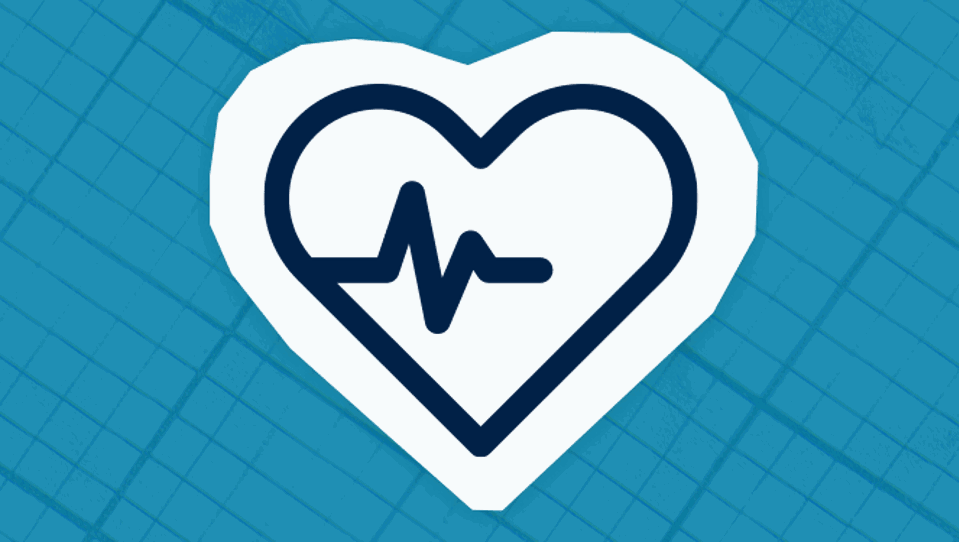
the satisfaction score given to us by blind veterans, classifying our services as ‘World Class’
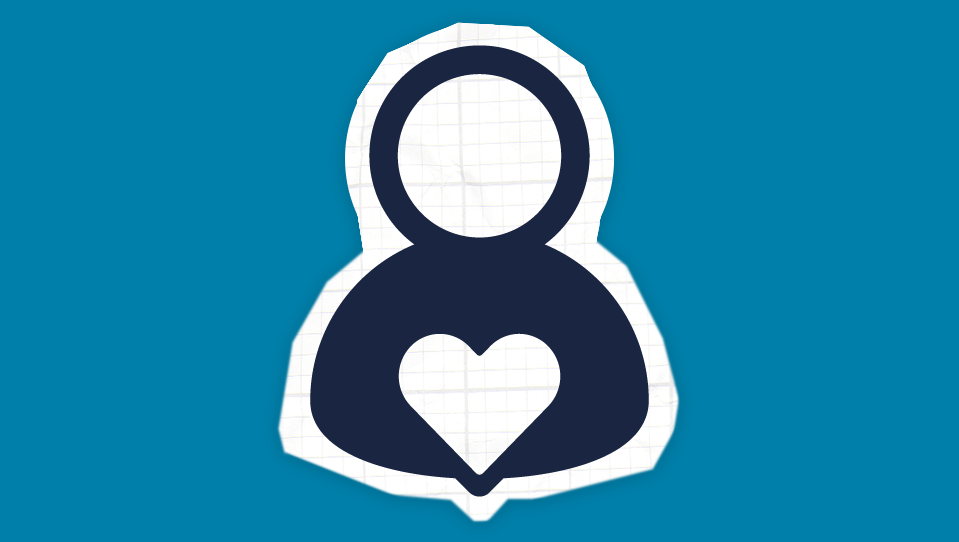
blind veterans were involved in our beneficiary engagement panels, helping us make the right decisions in the charity
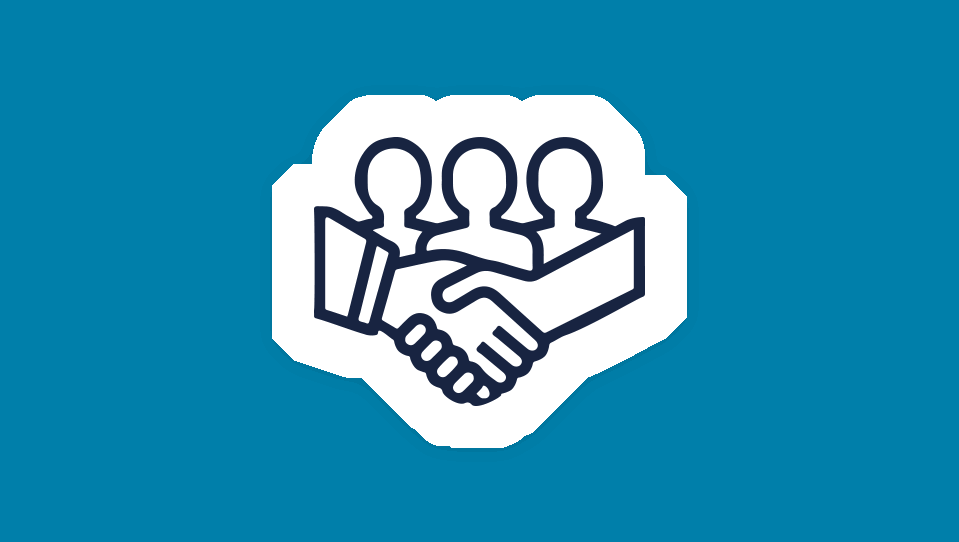
Case study: maintaining veterans' health
At the age of just 23, John was shot in the head during the conflict in Afghanistan and lost his right eye.
During a stay at our Centre of Wellbeing in Llandudno for a week-long extensive wellbeing programme, he was encouraged out of his comfort zone with a range of activities to support both his physical and mental wellbeing.
John said: "I tried boxing and felt like I'd done five rounds with Mohammed Ali! Then I tried air rifle shooting and found I was better at it than when I was in the army with two working eyes! I also did archery and seated yoga, and enjoyed a hand bath session.
"I'll definitely be back at one of the Centres for another stay soon."
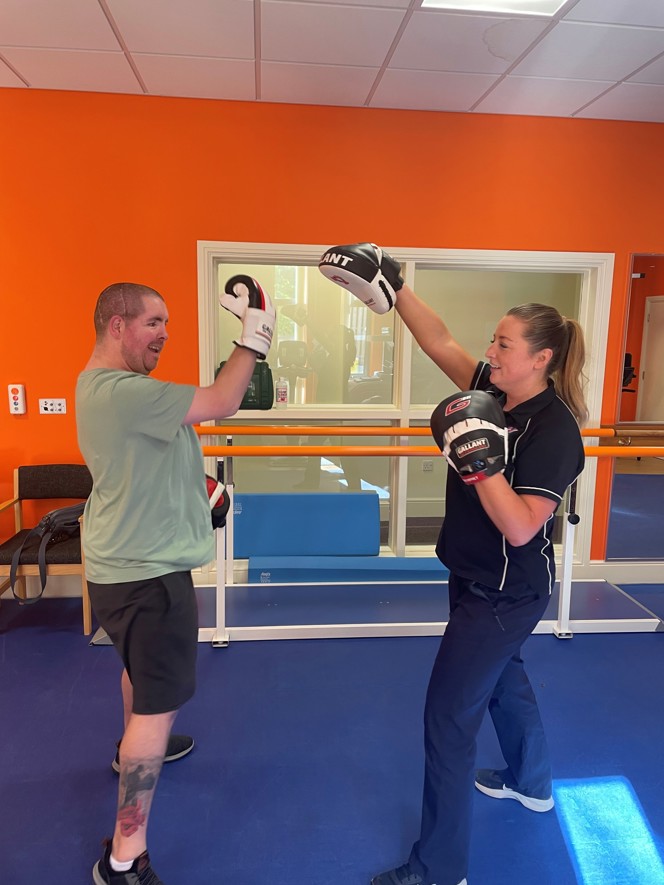
Our volunteers
Our amazing volunteers are absolutely essential in maintaining our veterans’ wellbeing. From providing crucial companionship to helping blind veterans get around their community, we wouldn’t be able to do what we do without them.
And following a long hiatus, the easing of restrictions has allowed them to get up and running again, providing critical support across the country.
volunteering hours were donated by 1,268 volunteers to support blind veterans in need
home visits or virtual home visits were made to our blind veterans by 223 volunteers, providing crucial companionship and support
worth of gifted volunteering hours were donated by our volunteers
Case study: our award-winning volunteer service
Our befriending service has received the top honour of ‘Quality in Befriending Excellence’, as judged by Befriending Networks.
It is testament to the hard work of both our incredible volunteers and dedicated volunteering team, that we are one of only 11 organisations to have achieved this award in the UK. The award acknowledges the significant difference our volunteer support provides to our blind veterans and highlights the quality of our volunteering service.
Angus Maclean, Quality Officer at Befriending Networks, says: “Blind Veterans UK’s policies and procedures are top-class, and their investment in focused training for both volunteers and staff is very impressive. Well done to the team at Blind Veterans UK for achieving fantastic outcomes for both blind veterans and volunteers.”
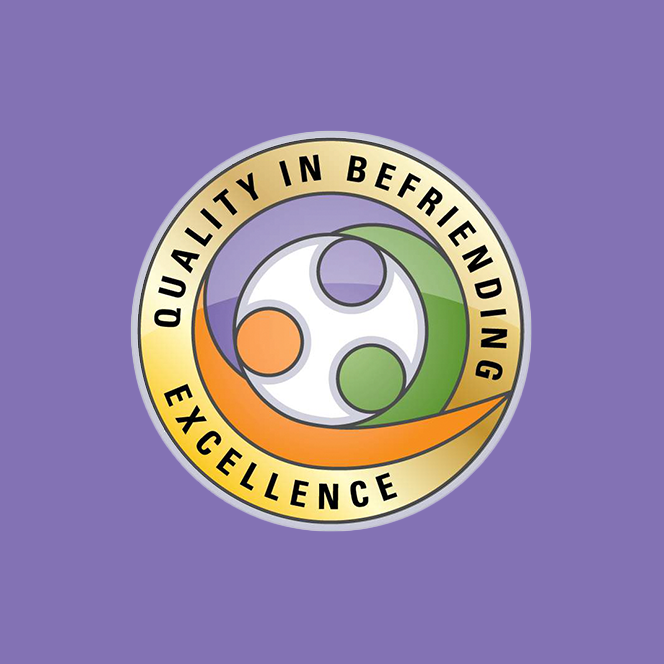
Giving back
Our blind veterans are often so appreciative of the support that we've given them to rebuild their lives, that they choose to give back to our charity by raising vital funds or volunteering to support other blind veterans in need. These projects also play a role in rehabilitation, giving veterans a goal, sense of purpose, and something to work towards.
Case study: tandem skydive to raise vital funds
Mark has been supported by us since he lost his sight in 2011 and credits us with saving his life. When he became terminally ill in 2023, he wanted to tick a tandem skydive off his bucket list while he was still able while also raising money for us.
With our support, Mark's wish became a reality and, watched by family and friends, he jumped from 13,000 feet out of an aircraft. Mark said: “I was so grateful for the opportunity to do the skydive. It’s wonderful that the charity is still helping me at this stage in my life."
Mark's skydive raised over £3,000. He said: “Giving back is important to me; helping with photography weeks and events used to be my way of paying back to the charity which has helped me so much, but as I’m not able to do that anymore this parachute jump has been my small way of saying 'thank you'."
More reports & publications
Visit our reports and publications page to explore our corporate strategy and annual reports.
Donate now
Help us to continue making a life-changing impact to the lives of blind veterans.
Read more
Support us
We need your help to change blind veterans' lives. Find out more about how you can donate, fundraise or volunteer.

Veterans' stories
Hear how we’ve helped blind veterans turn their lives around, in their own words.
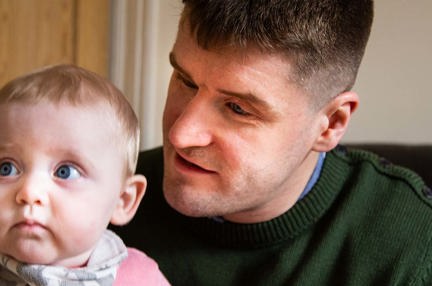
News and stories
Find out about what's happening across our charity, and learn more about our veterans, fundraisers and partners.

Sign up for email updates
We would love to send you updates about our work and how you can support us.
You can change your contact preferences at any time by calling us on 0300 111 2233 or emailing us. See our privacy policy for more details.